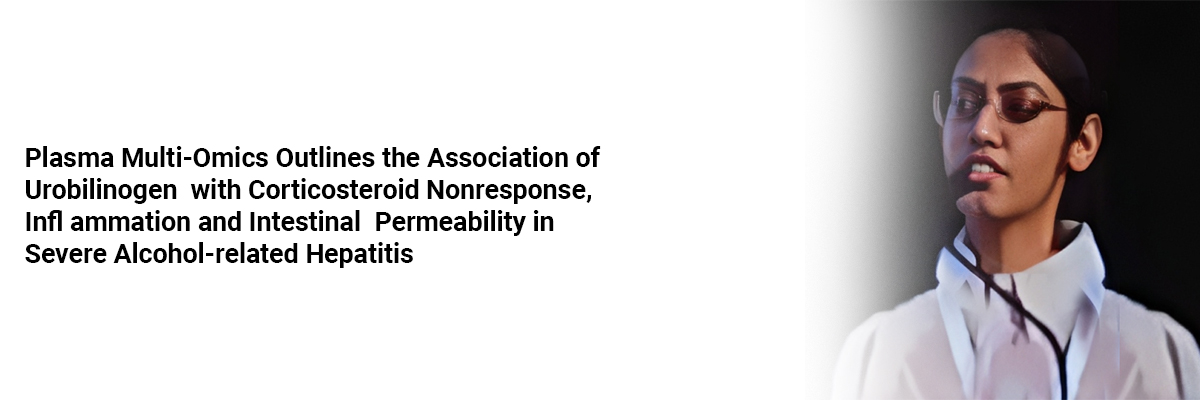
 IJCP Editorial Team
IJCP Editorial Team
Plasma Multi-Omics Outlines the Association of Urobilinogen with Corticosteroid Nonresponse, Infl ammation and Intestinal Permeability in Severe Alcohol-related Hepatitis
Severe alcohol-related hepatitis (SAH) is a severe form of acute decompensation in alcoholic liver disease, marked by rapid onset of jaundice, malaise, anorexia, tender hepatomegaly and features of systemic infl ammatory response syndrome, with a 40% mortality rate at 90 days.
Corticosteroid therapy, the standard medical treatment, is effective in 60% of patients.
Lille’s score, an international assessment, employs bilirubin levels to evaluate corticosteroid response at day 7. However, metabolic by-products of bilirubin, including urobilinogen, remain unstudied in steroid nonresponse.
Urobilinogen, a metabolic by-product of bilirubin produced in the gut by bacteria, plays a role in a detrimental cycle, altering gut integrity, circulating into the bloodstream, activating neutrophils and modulating glucocorticoid response, inducing immune fl are.
Removal of bilirubin and its metabolic by-products, such as urobilinogen, from the bloodstream is crucial to controlling immune fl are in SAH patients.

IJCP Editorial Team
Comprising seasoned professionals and experts from the medical field, the IJCP editorial team is dedicated to delivering timely and accurate content and thriving to provide attention-grabbing information for the readers. What sets them apart are their diverse expertise, spanning academia, research, and clinical practice, and their dedication to upholding the highest standards of quality and integrity. With a wealth of experience and a commitment to excellence, the IJCP editorial team strives to provide valuable perspectives, the latest trends, and in-depth analyses across various medical domains, all in a way that keeps you interested and engaged.



















Please login to comment on this article